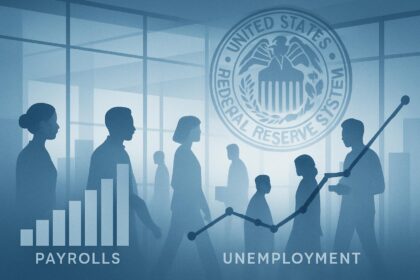AI Reshapes Entry-Level Employment and Corporate Career Progression
Historically, many prominent corporate leaders began their careers in entry-level roles, climbing the ranks to top executive positions. Hewlett Packard Enterprise CEO Antonio Neri started as a call center agent, Walmart’s Doug McMillon began unloading trucks during summers, and General Motors CEO Mary Barra worked on the assembly line at 18. These narratives have long embodied the ideal of upward mobility within American corporations. However, the rapid advancement of artificial intelligence (AI) threatens to disrupt this traditional career ladder.
AI’s Impact on Entry-Level Jobs and Organizational Structures
AI’s rise coincides with a trend toward organizational flattening, particularly the reduction of middle management layers. Dario Amodei, CEO of AI firm Anthropic, has projected that as AI capabilities improve, up to 50% of entry-level jobs could be eliminated, with AI systems potentially performing continuous shifts without breaks. This shift occurs amid challenges for recent college graduates seeking employment, prompting concerns about the future of upward career mobility.
SignalFire, a venture capital firm, analyzed hiring data from 2019 to 2024 across major public technology companies and established startups. Their findings reveal a 50% decline in new hires with less than one year of post-graduate experience across core functions including sales, marketing, engineering, human resources, operations, design, finance, and legal. SignalFire’s head of research, Asher Bantock, noted that while hiring is inherently volatile, the magnitude of this decline reflects a significant structural change.
Adapting to a Flattened Corporate Landscape
Despite these challenges, Heather Doshay, partner at SignalFire, advises against pessimism for job seekers. She argues that the disappearance of clear entry points reshapes rather than eliminates talent development within organizations. The traditional hierarchical ladder is evolving into a flatter structure, requiring new entrants to possess more advanced skills from the outset.
Doshay highlights that just as the mailroom entry point has vanished from many companies, the bottom rung of the corporate ladder is disappearing, potentially elevating overall workforce capability. However, this dynamic also places pressure on new graduates to acquire relevant skills independently before entering the workforce, rather than learning on the job in roles that are increasingly scarce.
She draws a parallel to previous technological transitions: “When the internet and email became essential corporate tools, graduates who mastered these in school gained a competitive edge. AI offers a similar opportunity for new workers to become tech-savvy experts.” Nonetheless, she acknowledges the current cohort of graduates faces heightened vulnerability amid this transition.
Educational Institutions and Long-Term Outlook
In response to AI’s growing prominence, universities are partnering with companies like Anthropic and OpenAI to integrate AI training into curricula. Historically, technological advances have not reduced employment in the long term but have caused short-term disruptions, particularly impacting entry-level roles. This could have lasting effects on career progression for recent graduates.
Anders Humlum, assistant professor of economics at the University of Chicago, cautions that predictions about AI’s long-term labor market effects remain speculative. He emphasizes that generative AI tools have not yet significantly influenced employment or wages across occupations in the initial years of adoption. Drawing on historical precedent, Humlum notes that transformative technologies such as steam power, electricity, and computers took decades to produce widespread economic impacts.
He further stresses the importance of inclusive adoption, citing research that reveals a notable gender gap in generative AI usage. Employers can mitigate this by encouraging adoption and providing training to ensure equitable workforce benefits.
Speculative Future: AI and the End of All Careers?
Some AI experts, including Max Tegmark, president of the Future of Life Institute, warn of a more radical future in which AI reaches superintelligence, capable of outperforming humans in all tasks. In such a scenario, the elimination of entry-level jobs could extend to all career levels, potentially resulting in significant wealth and power concentration among AI controllers and the machines themselves.
Tegmark cautions that unregulated AI development could accelerate this concentration, fundamentally altering the workforce and economic landscape.
FinOracleAI — Market View
The reported decline in entry-level hiring due to AI-driven automation signals a structural shift in workforce composition and talent development. While this creates immediate challenges for recent graduates and organizations’ talent pipelines, the long-term impact remains uncertain due to the gradual nature of technological adoption and human adaptability.
Investors should monitor corporate hiring trends, AI regulatory developments, and education-industry partnerships as key indicators of how labor markets will evolve. Risks include potential talent shortages in mid-level roles and socioeconomic disparities arising from uneven AI adoption.
Impact: negative













